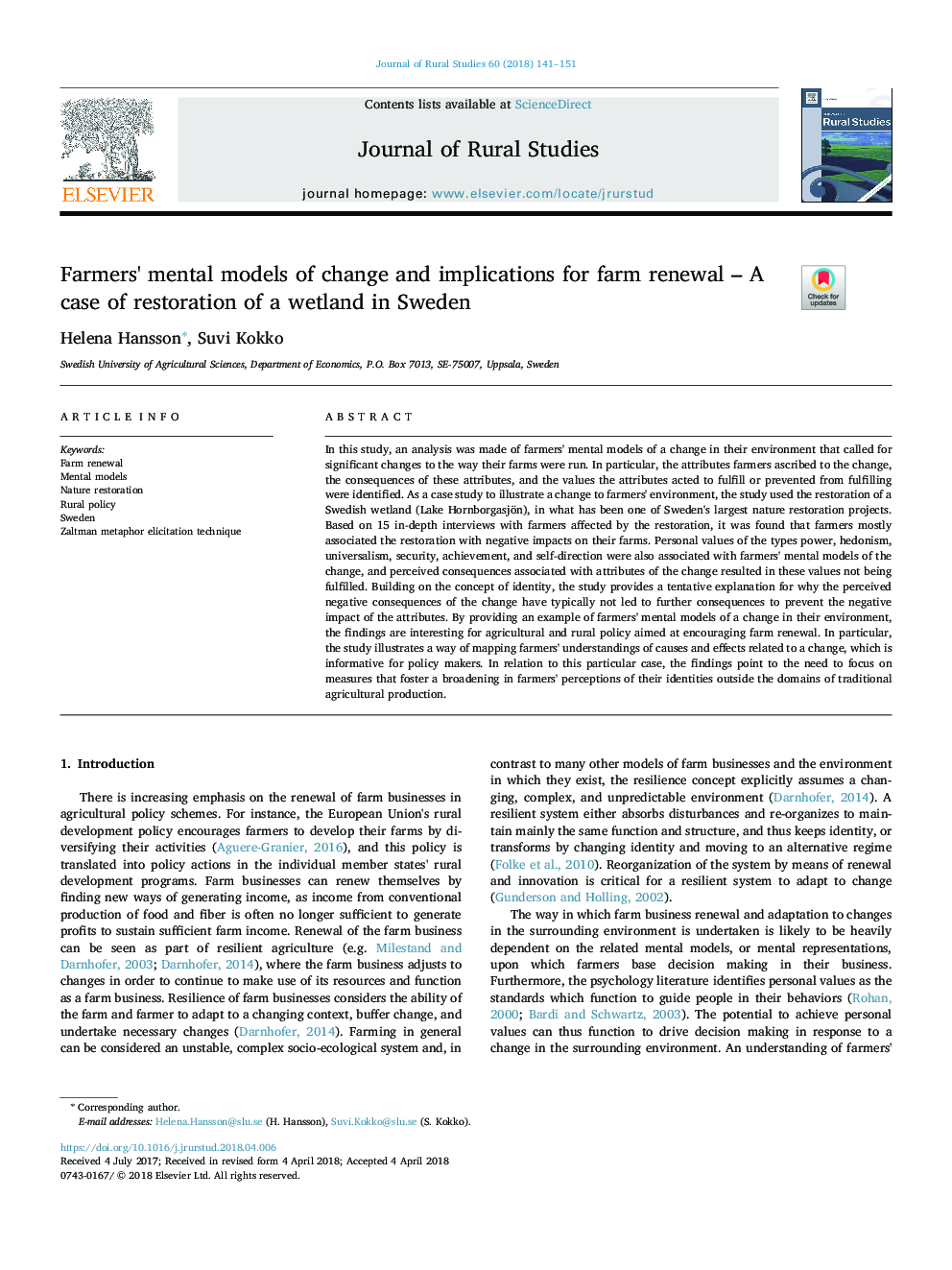| Article ID | Journal | Published Year | Pages | File Type |
|---|---|---|---|---|
| 6545278 | Journal of Rural Studies | 2018 | 11 Pages |
Abstract
In this study, an analysis was made of farmers' mental models of a change in their environment that called for significant changes to the way their farms were run. In particular, the attributes farmers ascribed to the change, the consequences of these attributes, and the values the attributes acted to fulfill or prevented from fulfilling were identified. As a case study to illustrate a change to farmers' environment, the study used the restoration of a Swedish wetland (Lake Hornborgasjön), in what has been one of Sweden's largest nature restoration projects. Based on 15 in-depth interviews with farmers affected by the restoration, it was found that farmers mostly associated the restoration with negative impacts on their farms. Personal values of the types power, hedonism, universalism, security, achievement, and self-direction were also associated with farmers' mental models of the change, and perceived consequences associated with attributes of the change resulted in these values not being fulfilled. Building on the concept of identity, the study provides a tentative explanation for why the perceived negative consequences of the change have typically not led to further consequences to prevent the negative impact of the attributes. By providing an example of farmers' mental models of a change in their environment, the findings are interesting for agricultural and rural policy aimed at encouraging farm renewal. In particular, the study illustrates a way of mapping farmers' understandings of causes and effects related to a change, which is informative for policy makers. In relation to this particular case, the findings point to the need to focus on measures that foster a broadening in farmers' perceptions of their identities outside the domains of traditional agricultural production.
Related Topics
Life Sciences
Agricultural and Biological Sciences
Forestry
Authors
Helena Hansson, Suvi Kokko,
